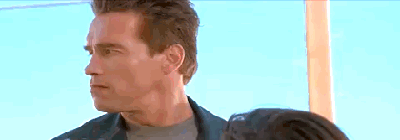You are using an out of date browser. It may not display this or other websites correctly.
You should upgrade or use an alternative browser.
You should upgrade or use an alternative browser.
European News
- Thread starter Quence
- Start date
Quence
obnoxious faggot
Have you ever tried pannenkoeken?
Quence
obnoxious faggot
This is very sad.

The Duchess of Kent dies aged 92, Buckingham Palace announces
The duchess was known for handing out trophies at Wimbledon but also worked as a music teacher in Hull.
Quence
obnoxious faggot
“She became a Catholic in 1994, the first royal to convert to Catholicism for more than 300 years”
The Duchess of Kent dies aged 92, Buckingham Palace announces
The duchess was known for handing out trophies at Wimbledon but also worked as a music teacher in Hull.www.bbc.com
Appalling. She might as well have been a common bogtrotter.
Quence
obnoxious faggot
Germany To Add More Than 100K Troops To Army In Preparation For War With Russia
sauceThe head of the German army is calling for more than doubling its forces in response to a perceived threat from Russia. The Army Chief said Berlin must be ready to fight a war with Moscow by 2029.
Reuters reports viewing confidential German documents that show Army Chief Alfons Mais wants to add 100,000 new troops to the military. The increase in armed men will more than double the size of the German Army.
"It is imperative for the army to become sufficiently ready for war by 2029 and provide the capabilities Germany pledged (to NATO) by 2035," he wrote on September 2.
The proposal comes as Berlin is increasing its defense commitments to Eastern European nations. Germany is in the process of establishing a permanent deployment of 5,000 troops in Lithuania.
Additionally, Berlin is planning to increase its surveillance in Poland after about two dozen Russian drones entered Polish airspace.
Berlin has yet to reach its 2018 goal of having 203,000 troops across its military. Earlier this year, German Defence Minister Boris Pistorius announced Berlin was now trying to increase the size of its military to 260,000.
According to further analysis and summary in Modern Diplomacy:
- Germany may need to reintroduce conscription or offer substantial incentives to attract and retain military personnel, amid a competitive labor market.
- Failure to meet troop targets could weaken NATO's eastern flank and strain alliances, particularly with frontline states like Poland and the Baltics.
- Increased defense spending will be necessary to equip and train new troops, testing Germany’s fiscal priorities and public support for militarization.
- Russia may view Germany’s military buildup as provocative, potentially escalating tensions in Eastern Europe.
"According to a first rough estimate, a total of around 460,000 personnel (from Germany) will be necessary, divided into some 260,000 active troops and around 200,000 reservists," he wrote.
give it up, nobody GAF about your blow hard paleo political threads
Quence
obnoxious faggot
Invasions have consequences.

Quence
obnoxious faggot
ps, visual capitalist has a wikidicki article but it was deleted
 en.wikipedia.org
en.wikipedia.org
Wikipedia:Articles for deletion/Visual Capitalist - Wikipedia
Quence
obnoxious faggot
And?ps, visual capitalist has a wikidicki article but it was deleted
Wikipedia:Articles for deletion/Visual Capitalist - Wikipedia
en.wikipedia.org
BenjaminCohen
Ediot
BREAKING NEWS!
Least respected user Quence still fat and old.
Least respected user Quence still fat and old.
Quence
obnoxious faggot
Germany Submits To Islam: Christmas Market In Overath Cancelled
sauce/archive
In the German town of Overath (North Rhine-Westphalia), this year’s Christmas market has been cancelled. The cost of protecting visitors from potential terrorist attacks exceeds the organizer’s budget. The city refuses to cover the expenses. A capitulation to Islamism.
It wasn’t long ago that Christmas markets were among the social highlights of the year. Whether in small towns or major cities – they were meeting points for friends and family, for mulled wine, sausages, and quiet conversations wrapped in winter’s cold and early darkness.
There was this special peaceful coziness. A place where community was celebrated – joyful, calm, and without fear. A tradition that brought people closer together.
What would urban life be without safe and regular gatherings in public spaces? A wasteland. A dystopia.
These moments – when people could pause, breathe, and let the soul drift for a moment – have become scarce in Germany’s public life. Since 2015, since Angela Merkel’s open-border decision, Europe has entered its own Michel Houellebecq moment.
The mass influx of young men from predominantly Islamic countries has deeply shattered the population’s sense of security.
And in this increasingly tense atmosphere, just when Chancellor Friedrich Merz touched a sore point by speaking about the changing face of cities, a storm of outrage erupted against him.
Even after deadly Islamist attacks – Berlin’s Breitscheidplatz in 2016 with 12 victims, the Solingen festival stabbing in 2023 with three dead, or the bombing plot at the Magdeburg Christmas market last year – Germany still refuses to confront militant Islam pressing into Europe.
The aggressive rejection of any criticism within Islamic circles points to the core problem: Islam never passed through the crucible of Enlightenment like Christianity did. Christianity’s claws were cut – and what remained was woven into the psychological fabric of modernity.
The list of Islamist attacks in Germany and Europe is long and growing month by month. And it proves how intimidation of secular Western society has become successful – when even traditional festivals like Christmas markets are only possible behind heavy police presence and concrete barriers to stop jihadist vehicle attacks.
The feeling of carefree celebration is gone.
Another Christmas Market Falls
The cancellation of this year’s Christmas market in Overathnear Cologne fits perfectly into this picture. High security costs to protect visitors from terrorism make it impossible to open. The city refused to cover the organizer’s expenses.
The same now in Dresden – several smaller private Christmas markets cancelled because security costs exploded.
For one and a half years, the market association tried to negotiate with city officials, said Andreas Korschmann, head of the town marketing group.
Wouldn’t this be precisely the moment for the city to step up? Aren’t politicians always preaching about civic engagement and vibrant local life?
But there is no sign of courage, no standing up for a free, tolerant society. Just hollow political phrases for their own feel-good bubble.
In Overath, Islamists have managed – without any real resistance – to push aside a piece of tradition and communal life.
Outside knife-free zones and heavily policed city centers, a chilling silence spreads.
Winter Markets as Fig Leaf
The pitiful renaming of Christmas markets into “Winter Markets” was already a bow to Islam. A needless kowtow to an increasingly irritable, alienated homegrown left-wing milieu.
Germany is trapped in an identity and cultural crisis.
It’s impossible to ignore: large parts of politics and society have thrown in the towel, surrendering to Islamist pressure and the obvious threat.
A real solution would begin at the border – with a completely new regime controlling who enters the country. But the political Left and its media complex successfully taboo such measures as nationalist extremism.
The policy of open borders – a one-way membrane into the welfare state – has inflicted deep wounds on German society over the last decade. This is not just a vague feeling of insecurity; it is statistically documented in black and white.
With endless migration waves and the lack of cultural immune defense, German traditions and public life are fading into a deafening silence.
Michel Houellebecq’s grim vision of Europe bowing before militant Islam is, year after year, turning into a bleak certainty.
Even after deadly Islamist attacks – Berlin’s Breitscheidplatz in 2016 with 12 victims, the Solingen festival stabbing in 2023 with three dead, or the bombing plot at the Magdeburg Christmas market last year – Germany still refuses to confront militant Islam pressing into Europe.
The aggressive rejection of any criticism within Islamic circles points to the core problem: Islam never passed through the crucible of Enlightenment like Christianity did. Christianity’s claws were cut – and what remained was woven into the psychological fabric of modernity.
The list of Islamist attacks in Germany and Europe is long and growing month by month. And it proves how intimidation of secular Western society has become successful – when even traditional festivals like Christmas markets are only possible behind heavy police presence and concrete barriers to stop jihadist vehicle attacks.
The feeling of carefree celebration is gone.
Another Christmas Market Falls
The cancellation of this year’s Christmas market in Overathnear Cologne fits perfectly into this picture. High security costs to protect visitors from terrorism make it impossible to open. The city refused to cover the organizer’s expenses.
The same now in Dresden – several smaller private Christmas markets cancelled because security costs exploded.
For one and a half years, the market association tried to negotiate with city officials, said Andreas Korschmann, head of the town marketing group.
Wouldn’t this be precisely the moment for the city to step up? Aren’t politicians always preaching about civic engagement and vibrant local life?
But there is no sign of courage, no standing up for a free, tolerant society. Just hollow political phrases for their own feel-good bubble.
In Overath, Islamists have managed – without any real resistance – to push aside a piece of tradition and communal life.
Outside knife-free zones and heavily policed city centers, a chilling silence spreads.
Winter Markets as Fig Leaf
The pitiful renaming of Christmas markets into “Winter Markets” was already a bow to Islam. A needless kowtow to an increasingly irritable, alienated homegrown left-wing milieu.
Germany is trapped in an identity and cultural crisis.
It’s impossible to ignore: large parts of politics and society have thrown in the towel, surrendering to Islamist pressure and the obvious threat.
A real solution would begin at the border – with a completely new regime controlling who enters the country. But the political Left and its media complex successfully taboo such measures as nationalist extremism.
The policy of open borders – a one-way membrane into the welfare state – has inflicted deep wounds on German society over the last decade. This is not just a vague feeling of insecurity; it is statistically documented in black and white.
With endless migration waves and the lack of cultural immune defense, German traditions and public life are fading into a deafening silence.
Michel Houellebecq’s grim vision of Europe bowing before militant Islam is, year after year, turning into a bleak certainty.
Quence
obnoxious faggot
Denmark had national elections and the old Leftist party suffered a shellacking. The reason? Immigration.
Quence
obnoxious faggot
what crosses my mind after every quence post
Quence
obnoxious faggot
These Englishmen are sober thinkers and clearly understand the issues at hand.
Quence
obnoxious faggot
Even the Spaniards are getting sick and tired of the far left wackos running their government.

